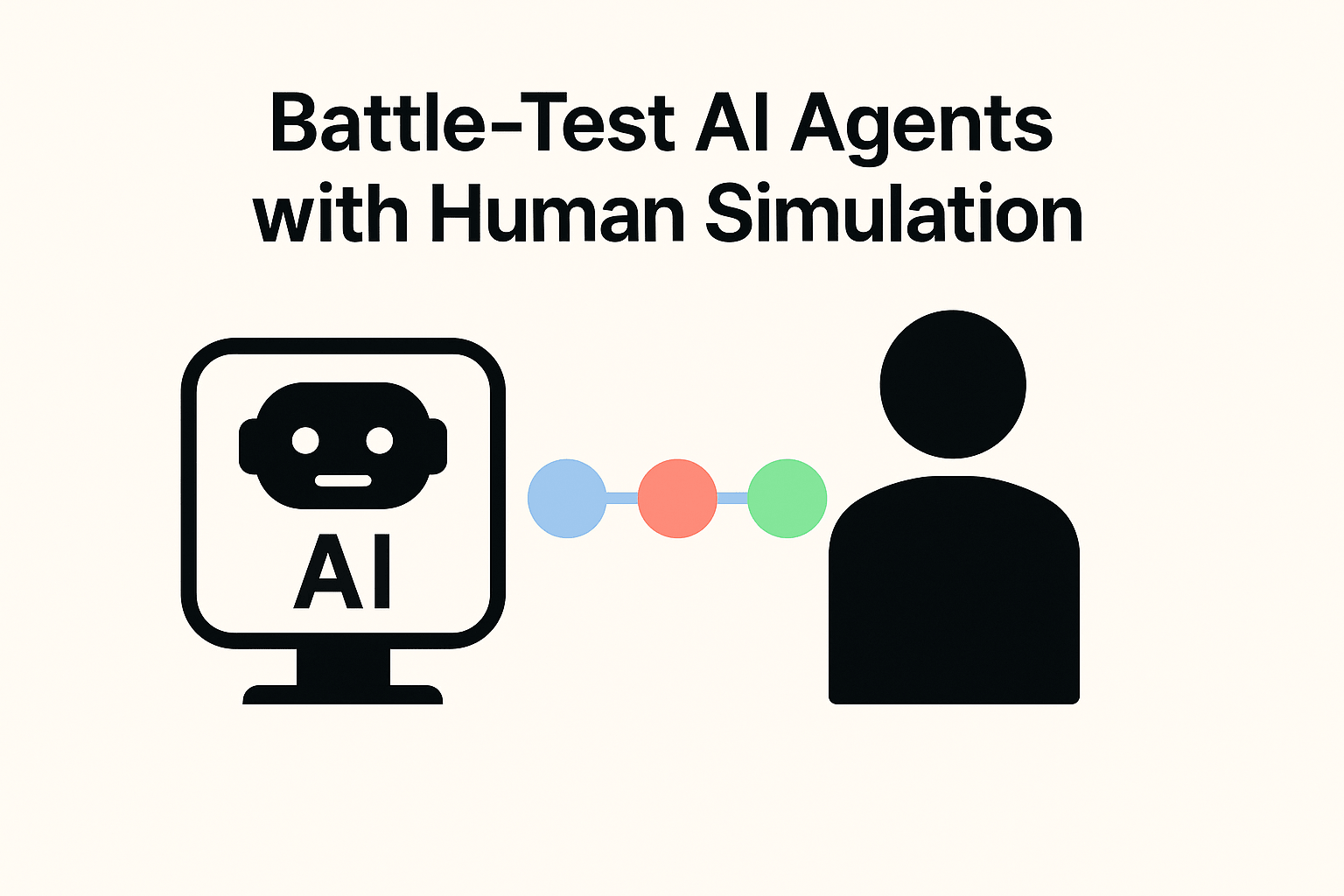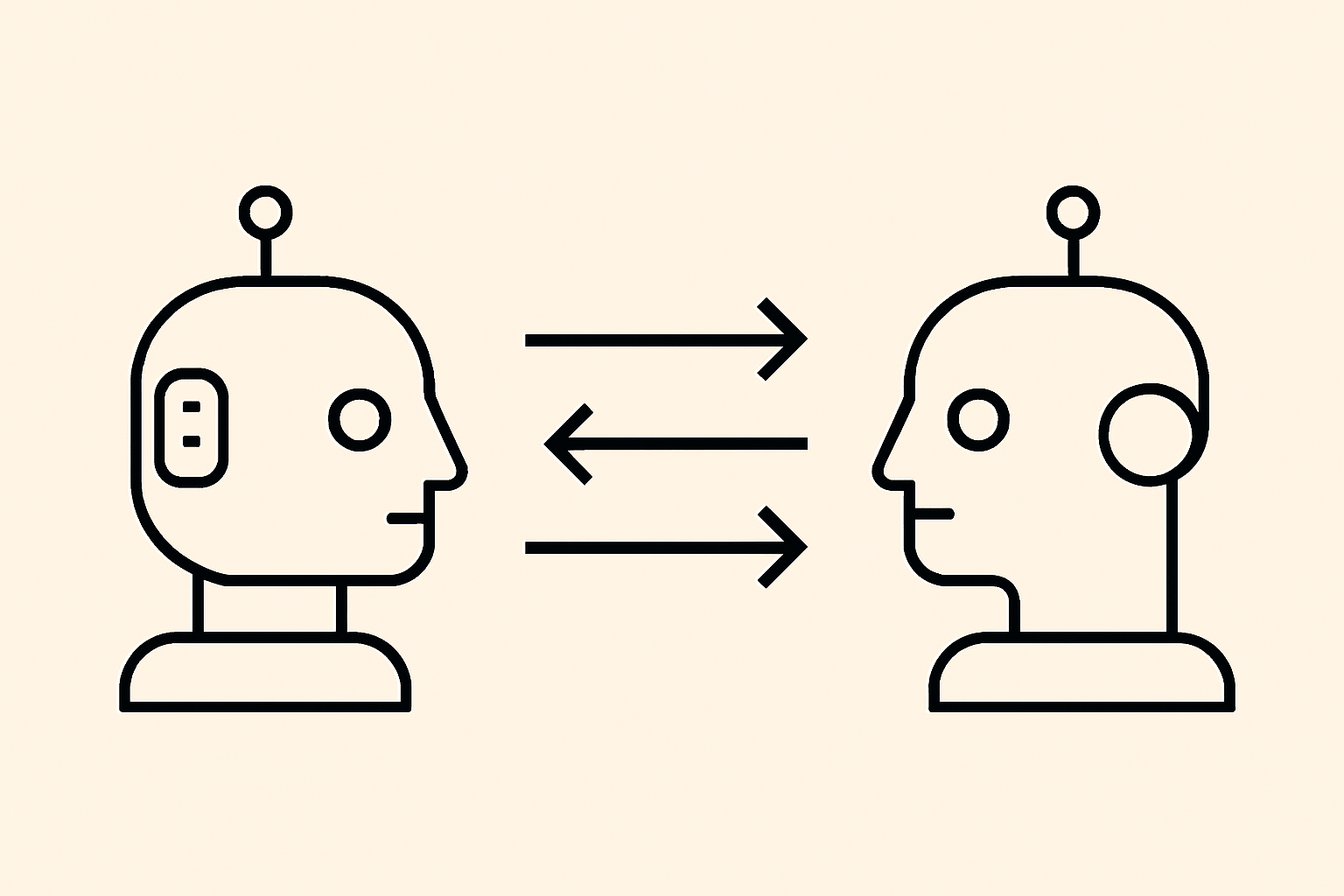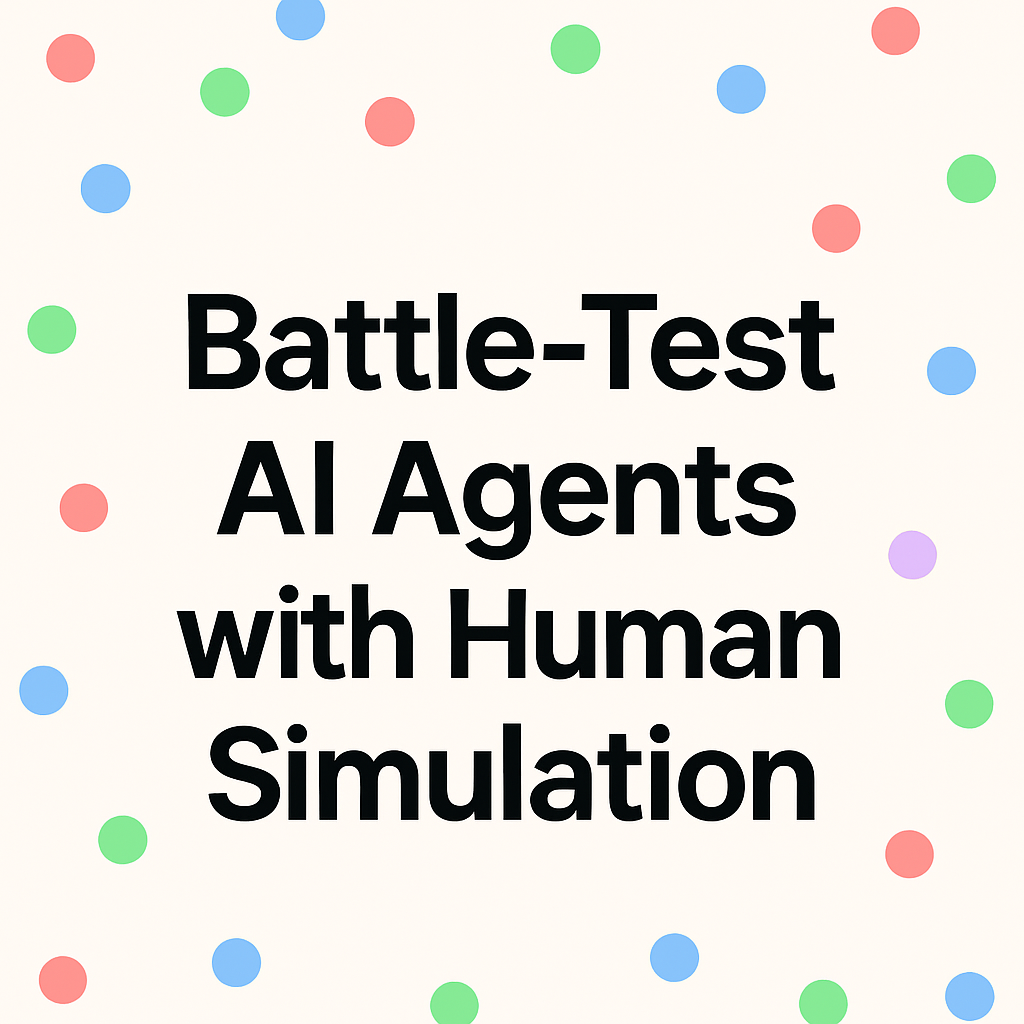Janus: The AI Testing Startup Simulating Thousands of Conversations
As artificial intelligence systems—particularly conversational agents—rapidly proliferate across customer service, healthcare, finance, and enterprise tools, a serious blind spot remains: how do you truly know your AI is ready for the real world? Despite advances in large language models (LLMs), most teams still test their AI agents manually, relying on rudimentary playgrounds and small prompt sets to simulate conversations. This leaves mission-critical systems vulnerable to hallucinations, rule violations, tool call failures, and performance breakdowns.
The consequences are far from trivial. A single bot misstep—like inventing company policies or failing to comply with data regulations—can lead to public relations crises, lost users, lawsuits, or even regulatory penalties. Janus emerges in this context as a powerful, much-needed solution.
How Does Janus Work?
Janus is a simulation testing platform that "battle-tests" AI agents before they ever interact with real users. Its strength lies in scale, personalization, and automation.
Rather than manually testing a few dozen scenarios, Janus simulates thousands of realistic AI users—from irate customers to domain experts—who engage in multi-turn conversations (text or voice) with the AI agent. These simulated interactions stress-test the system across countless edge cases and unexpected inputs.
Users can define natural language rules to guide the testing process. Want to ensure your agent never gives financial advice, avoids certain trigger phrases, or correctly handles specific API tool calls? Just say it in plain English. Janus interprets this input and applies it across every simulated interaction.
The platform then uses state-of-the-art LLM-as-a-Judge models and uncertainty quantification (UQ) techniques to automatically detect hallucinations, biases, rule-breaking behavior, and breakdowns in functionality. Results are tied to specific user personas and use cases, offering actionable insights that developers can feed directly into CI/CD pipelines.
Why Is Janus Different From Other QA Tools?
The majority of AI testing tools today are either generic (focusing on broad performance metrics) or manual (requiring teams to painstakingly test scenarios by hand). Neither approach scales to the complexity of real-world usage, especially in environments where AI agents interact with humans via natural language and external APIs.
What sets Janus apart is its human simulation engine. It doesn’t just replay existing logs or test single-turn prompts—it generates rich, multi-turn conversations that reflect the chaos and complexity of real users. It also:
- Customizes personas based on your domain and user types
- Integrates with both chat and voice agents
- Evaluates tool-use performance and API integrations
- Surface failure points before deployment
In short, Janus doesn't just test—it simulates reality.
Who Is Behind Janus?
Janus was founded in 2025 by Shivum Pandove and Jet Wu, two machine learning experts with deep roots in both academia and industry. The pair dropped out of Carnegie Mellon's ML program, turning down roles at Anduril and IBM to launch Janus full-time from San Francisco.
Shivum brings experience from scaling multiple startups in both software engineering and product roles, as well as conducting deep learning research in computational biology. Jet previously worked on evaluation frameworks for Microsoft (notably the TinyTroupe system), was an AI Fellow at Cerebras Systems, and conducted open-source intelligence (OSINT) research with Bellingcat.
Their shared frustration with the brittle nature of deploying LLM-based agents led them to build Janus. Having experienced first-hand how minor prompt changes could crash production systems, they realized that a robust simulation platform—akin to crash-test dummies for AI—was sorely missing. Janus was the tool they wished they had from day one.

What Are the Core Features of the Janus Platform?
Janus brings a wide array of intelligent automation capabilities to AI testing:
- Persona Generation: Hyper-realistic simulated users tailored to your use case, ranging from helpful collaborators to confrontational customers.
- Multi-turn Dialogues: Full conversations (not just prompts) that span multiple back-and-forth turns, uncovering issues missed in single-turn tests.
- Natural Language Rule Setting: Define what “success” looks like using plain English, and Janus turns that into concrete test criteria.
- Tool Call & API Testing: Assess whether agents can properly execute external functions, calls, or integrations under various scenarios.
- Hallucination & Bias Detection: State-of-the-art evaluation techniques catch risky, false, or offensive outputs.
- Root Cause Analysis: Failures are mapped to their root causes—whether prompt issues, model drift, or tool interface errors.
- CI/CD Integration: Insights feed directly into dev pipelines, enabling continuous testing with every update.
All of this happens in under 10 minutes—transforming what used to be a tedious QA process into a streamlined, high-confidence system check.
Why Is Janus Especially Relevant in 2025?
With LLMs now embedded in customer support, healthcare guidance, financial advisory, education, and even legal interfaces, the stakes for AI failure are higher than ever. As regulations tighten and public scrutiny of AI decisions increases, the ability to demonstrably validate and defend AI behavior becomes a business imperative.
Manual QA is no longer enough. It misses the long-tail edge cases that define real-world complexity. Companies that deploy untested or under-tested AI systems risk catastrophic outcomes.
Janus arrives just in time, offering companies the infrastructure to transition from "hope-based deployment" to "confidence-based deployment."
Who Should Use Janus?
Janus is ideal for:
- Startups deploying LLM agents in customer-facing apps or enterprise tools
- Enterprise teams integrating voice/chat bots into internal workflows
- AI product managers looking for reliable feedback loops and faster iteration cycles
- Regulated industries (like finance, healthcare, legal) that need to prove compliance and risk mitigation in their AI systems
It’s especially valuable for teams working at the intersection of LLMs and APIs, where tool-call breakdowns can be subtle and hard to detect until it’s too late.
What Is Janus Building Toward?
The vision for Janus is to become the standard crash-test protocol for conversational AI. Just as cars are rigorously tested before being allowed on the road, AI agents—especially ones that speak on behalf of brands—should be tested against thousands of possible real-world scenarios.
As AI continues to evolve, Janus will expand its simulation models, support more languages and modalities (beyond text and voice), and deepen its evaluation intelligence through integrations with cutting-edge research on alignment, bias, and agent reliability.
With an eye toward ethical AI deployment and technical resilience, Janus is positioning itself as the guardian at the gate—a vital layer in the LLM production stack.

Final Thoughts
Janus is not just another tool—it’s a philosophy shift. It invites AI builders to think beyond “Does it work in the playground?” and ask, “Does it survive the real world?”
By simulating human behavior at scale and combining it with cutting-edge LLM evaluation, Janus ensures AI systems are not only intelligent but battle-tested, trustworthy, and safe.
In a world racing toward AI ubiquity, Janus stands as a critical checkpoint between experimentation and real-world deployment. And for teams who want to ship smarter, safer, and faster, it might just be the most important tool in their stack.

